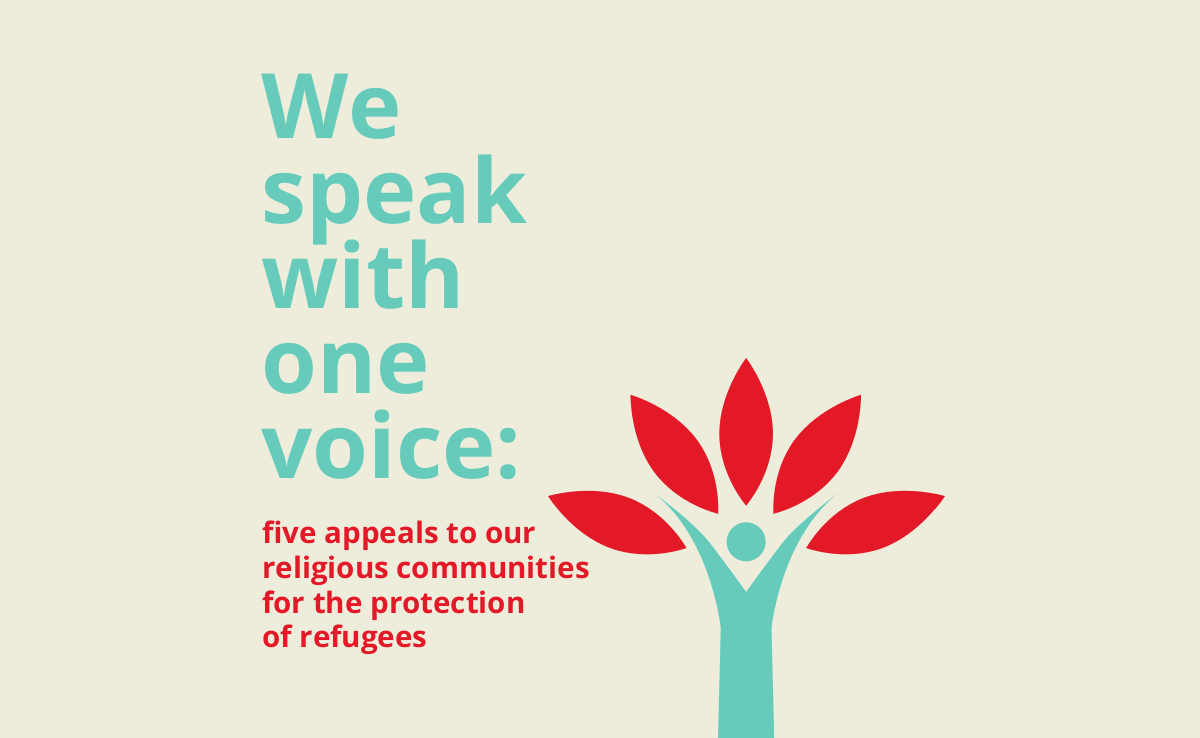The religious communities represented in the Swiss Council of Religions are encouraging their members to stand with refugees. They also call upon the government and politicians to assume responsibility for the needs of refugees, e.g. by institutionalizing resettlement. This is the first time that Jews, Christians and Muslims have made a joint declaration on refugee issues. Therefore, this declaration is unique and represents a major step forward in interreligious dialogue. The project is supported by the UN Refugee Agency – a long-standing partner of politically and socially involved religious communities around the world.
The religious communities and organizations play a crucial role in the protection and integration of refugees. Based on this insight, António Guterres, former High Commissioner for Refugees and now Secretary General of the United Nations, initiated an international dialogue on “Faith and Protection” in 2012. In this spirit, religious communities should continue to be involved in refugee protection in the future.
The religious communities represented in the Swiss Council of Religions have responded to this call and are now breaking new ground with their joint refugee declaration. Bishop Harald Rein, Bishop of the Christian Catholic Church of Switzerland and Chairman of the Swiss Council of Religions, states: “This applies to Jews, Christians and Muslims alike: Every human being is a child of God, and thus under His protection. As believers, we thus have a special responsibility towards the refugees.”
Five appeals for strong refugee protection
Based on this understanding, the religious communities have authored five appeals on Swiss refugee policy and published them today in a joint declaration. They address the issue of protection in the countries of origin, which is an important goal of Swiss refugee and foreign policy. In addition, Switzerland needs fair and effective asylum proceedings that fully apply the concept of refugees as defined by the Geneva Convention. For example, people affected by civil war should be granted refugee status instead of temporary admission. According to the declaration, it is also essential to take into account the right to a family life, as well as the early integration of refugees. This area in particular is where religious communities can make contributions by starting, maintaining and supporting volunteer work, local support networks and individual initiatives. For refugees, on the other hand, respecting local rules is the key for integrating themselves and becoming part of this society. It should go without saying that the values set down in the Federal Constitution apply to them as well. Furthermore, the declaration demands a return with dignity for persons who do not meet the criteria for protection. This includes complying with human rights standards in deportation enforcement and ensuring children’s well-being in every situation.
Resettlement for particularly vulnerable persons
The interreligious declaration’s fifth appeal focuses on a very current political issue, the concept of resettlement: The government and politicians are specifically called upon to institutionalize refugee resettlement directly from crisis areas as a long-term instrument of Swiss asylum policy. This would continue a decades-long tradition of Swiss humanitarianism. In recent years, Switzerland decided to accept 3500 refugees, mainly victims of the Syrian war, in the course of resettlement programs. However, the last such program will expire next year.
UNHCR calls declaration a “model project”
The UNHCR office for Switzerland and Liechtenstein has supported the implementation of the Interreligious Declaration on Refugee Issues. According to Anja Klug, the head of office and thus the representative of the UNHCR in Switzerland, this national dialogue is highly important: “As the result of cooperation between the UNHCR and religious communities in Switzerland, the Interreligious Declaration on Refugee Issues is an important model project that will hopefully also set an example for other countries.”
In the coming days, the refugee declaration will be discussed with the responsible federal offices in Switzerland. The urgency of the issue is undisputed: There are over 68 million refugees worldwide – more than ever before. About half of them are children.
